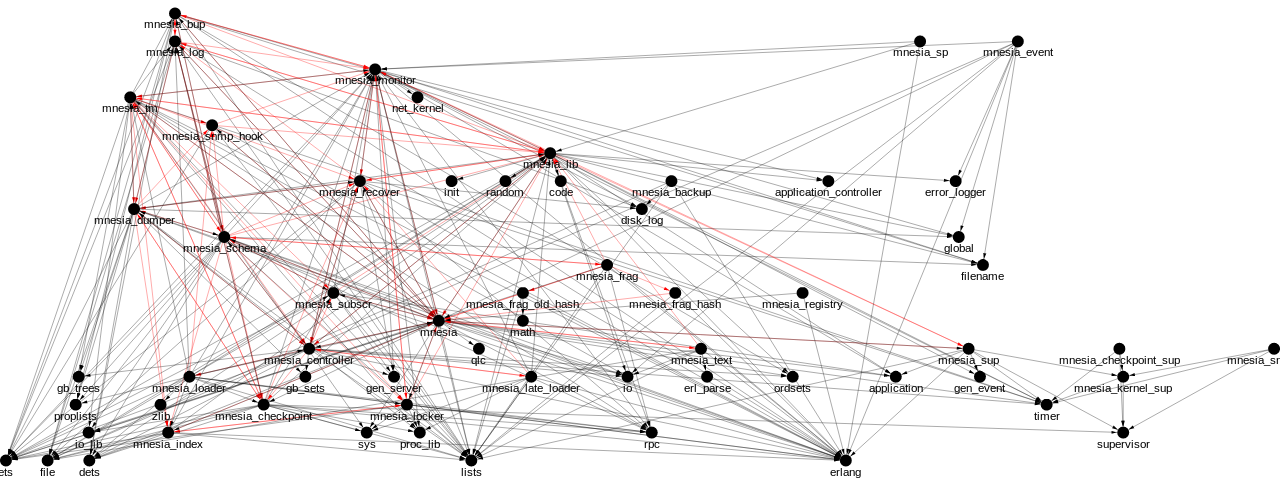RefactorErl is an open-source static source code analyser and transformer tool for Erlang, developed by the Department of Programming Languages and Compilers at the Faculty of Informatics, Eötvös Loránd University, Budapest, Hungary.
The main focus of the project is to support daily code comprehension tasks of Erlang developers. While this source code analyser and transformer tool is still considered as a prototype, its usefulness in industrial usage has already been proved, and every major limitation of real-world usage has been addressed.
The tool has a custom Erlang source code analyser and transformer that is capable of handling real-world code, it was successfully applied on more than 1,5 million LOC. Features include support for analysing macro constructs, storage and fast retrieval of analysis results, and source code layout and comment preservation during transformations.
The result of different static semantic analysis is available through a user-level semantic query language, that can assist Erlang developers in everyday tasks such as program comprehension, debugging, finding relationships among program parts, etc.

